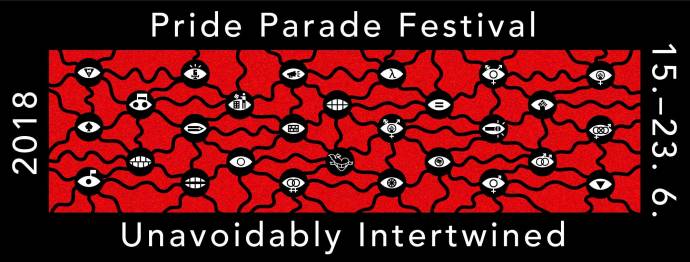Head of the Pride Parade association Simona Muršec told the press on Monday that, considering the social climate and the election campaign-heavy events in the last few weeks, one could assess that the association was forward-looking with its programme.
"But we are actually not forward-looking. What we want to emphasise with the programme is a reflection of the society," Muršec said, adding that the hatred towards minorities showed in social media during the election campaign was nothing new.
One of the main topics of debates as part of the festival will thus be focused on intersectionality - the interlocking of identities and personal circumstances.
It is a concept related to a simultaneous experience of categorical and hierarchical classifications, such as race, class, gender, sexual orientation, nationality and many others, Muršec explained.
When social structures are perceived through a prism of intersectionality, you always have to put race as a category in the core. Anti-racism struggle must always be in the core of any struggle for social change and equality, she added.
Also to be discussed are solidarity and joint struggle of all minorities. It is not enough to march at the parade only for the rights of the LGBT community, because these rights are intertwined with the rights of women, minorities etc.
The festival will start on Friday with a presentation of the work by Ecuadorian photographer and activist Paola Paredes, who interviewed victims of institutions in Ecuador where homosexual men and women and transsexual persons are being "treated".
According to Paredes, these persons are kept there against their will and are exposed to psychological and physical torture. In her presentation, she reproduces scenes lived by the victims in those facilities.
On the same day, a concert will be held at Kino Šiška by Canadian electronic musician and performance artist Peaches, who according to Muršec has paved her own sexually-progressive path, opening the door to many others who followed her.
The festival will conclude with a procession in the capital, starting at the Metelkova counter-culture centre and finishing in Novi Trg.
Muršec said that the parade was a way to remember the beginnings of the fight for the LGBT rights. "Considering what is going on in the society, it should be stressed again that we are unfortunately still not equal in the society."
As long as two men who dance together get thrown out of a bar in Ljubljana or Slovenia in general, the parade cannot be only a fun event, but above all a protest, she concluded.
You can visit Pride’s homepage and see the full schedule, in English, here, while our interview with Simona Muršec is here.






